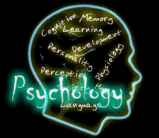In this series you will find symptoms, treatments, and general information about a variety of mental health illness & disorders.

#1: Borderline Personality Disorder
Borderline Personality Disorder (BPD) is a controversial diagnosis these days in psychology. According to DSM-IV criteria, a diagnosis of BPD requires a person to present with at least five (5) of the following nine (9) criteria:
- Shifts in mood lasting only a few hours.
- Anger that is inappropriate, intense or uncontrollable.
- Self-destructive acts, such as self-mutilation or suicidal threats and gestures that happen more than once.
- Two potentially self-damaging impulsive behaviors. (These could include alcohol and other drug abuse, compulsive spending, gambling, eating disorders, shoplifting, reckless driving, compulsive sexual behavior.)
- Marked, persistent identity disturbance shown by uncertainty in at least two (2) areas. These areas can include self-image, sexual orientation, career choice or other long term goals, friendships, values. (People with BPD may not feel like they know who they are, or what they think, or what their opinions are, or what religion they should be. Instead, they may try to be what they think other people want them to be.)
- Chronic feelings of emptiness or boredom.
- Unstable, chaotic intense relationships characterized by "splitting."
- Frantic efforts to avoid real or imagined abandonment:
- Splitting: the self and others are viewed as "all good" or "all bad."
- Alternating clinging and distancing behaviors (I Hate You, Don't Leave Me).
- Great difficulty trusting people and themselves. Early trust may have been shattered by people who were close to them.
- Sensitivity to criticism or rejection.
- Feeling of "needing" someone else to survive.
- Heavy need for affection and reassurance.
- Some people with BPD may have an unusally high degree of interpersonal sensitivity, insight, and empathy.
feeling "out of it," or not being able to remember what you said or did.)
Other symptoms & attributes of people with BPD:
- Affect - chronic/major depression, helplessness, hopelessness, guilt, anger (including frequent expressions of anger), anxiety, loneliness, and emptiness.
- Cognition - odd thinking, unusual perceptions, non-delusional paranoia
- Impulse action patterns - substance abuse/dependence, sexual deviance, manipulative suicidal gestures
- Interpersonal relationships - intolerance of aloneness; abandonment, engulfment, annihilation fears, counterdependency, stormy relationships, manipulativeness, demanding, entitlement
- People with BPD are often bright, witty, funny, life of the party.
- They may have problems with object constancy. Often, they want to keep something belonging to a loved one around during separations.
- They frequently have difficulty tolerating aloneness, even for short periods of time.
- Their lives may be a chaotic landscape of job losses, interrupted educational pursuits, broken engagements, hospitalizations.
- Many have a background of childhood physical, sexual, or emotional abuse or physical/emotional neglect.
Treatment Options:
- Psychotherapy - used to help people learn new coping skills and emotional regulation.
- Hospitalization - intensive medication therapy in conjunction with psychotherapy sessions. (this method is rarely appropriate for long-term care of BPD patients.)
- Medications - antipsychotic drug therapy may be useful for brief reactive psychoses , neuroleptics may be helpful for disorganized thinking and some psychotic symptoms, anti-depressants & anti-anxiety agents may be appropriate at certain times
- Self-Help - encouraging people with BPD to gain additional social support is an important aspect of treatment.
More information about this disorder may be found at:
NIMH - http://www.nimh.nih.gov/health/publications/borderline-personality-disorder.shtml


0 Remarks:
Post a Comment